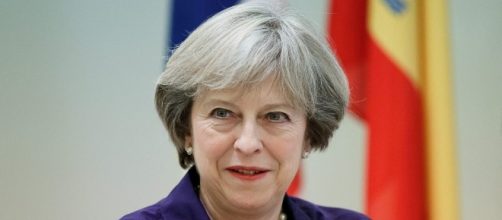British Prime Minister Theresa May has called for early elections in the United Kingdom to occur on June 8. The prime minister suggested that the election is needed to “guarantee certainty and security for years ahead." The particular reason is that the opposition parties, mainly Labour, are obstructing Brexit, the process of separating Great Britain from the European Union. She would like to ram home her mandate to complete the separation by returning with an increased majority in the British Parliament.
What are the Conservative Party’s chances?
According to a recent poll, pretty good. In a recent survey matchup between May and Labour leader Jeremy Corbyn shows that she leads by 55 percent to 18 percent. If the polls hold until the election, May and her Tories are confident they will crush Corbyn and his Labour Party.
A close examination of Corbyn and his politics reveals why he is likely to get crushed in the general election. He has been described as a caricature of a bearded Marxist, a throwback to the hard left stance Labour adhered to before Tony Blair dragged the party, kicking and screaming, toward the center and the first time the party was able to form a government since Margaret Thatcher became prime minister in 1979.
Corbyn has called for the abolition of the British monarchy, a renationalization of industries that were privatized during the Thatcher era, the elimination of the UK’s nuclear arsenal, and a decidedly hostile to the United States foreign policy.
His becoming Labour leader is considered an anomaly in British politics. He has a small but fiercely loyal following, but like Sen. Bernie Sanders does in the United States. However, his support does not translate into any chance of winning a national election.
May had initially been reluctant to call for an election. However, her commanding lead in the polls coupled with a need to buttress her mandate to take Great Britain out of the EU has changed her mind on the matter.
Ironically, May had not supported the Brexit referendum but, as prime minister, had vowed to carry out the will of the people. She ascended to Number 10 when her predecessor, David Cameron, resigned following the approval of the measure. Britons had become fed up with following the dictates of Brussels contrary to their interests and so jumped at the chance to leave the European Union.
The result of the referendum took many political analysts by surprise and was seen as part of a wave of nationalism that swept Donald Trump to the presidency of the United States and has given Marine Le Pen strength in the election for president of France.

